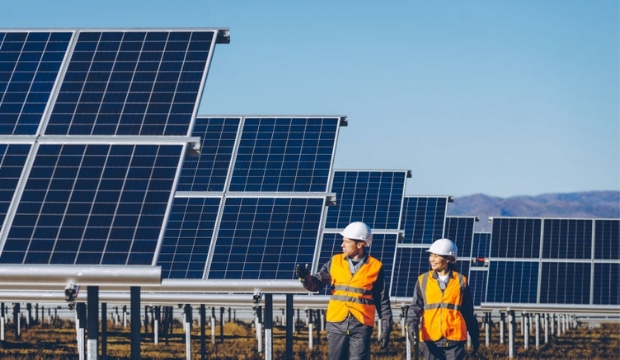Rumored Buzz on Top Rated Solar Installers Pa
Rumored Buzz on Top Rated Solar Installers Pa
Blog Article
Solar Power Rebates PA: Our Company Concentrates On The Setup And Management Of Photovoltaic Energy Systems
History and Development of Solar Panel Companies
The inception of solar panel companies can be traced back to the 1800s when Alexandre Edmond Becquerel discovered the photovoltaic effect. Would he have imagined how his discovery would revolutionize the way we harness energy?
Early Starts

In 1954, Bell Labs established the very first useful photovoltaic cell. This marked a substantial milestone in the history of solar power. They were at first used to power area satellites, however who understood this was just the start?
Evolution and Growth
- In the 1970s, an energy crisis caused increased interest in renewable energy sources, consisting of solar energy.
- By the 1990s, developments in technology and increasing environmental awareness caused the growth of photovoltaic panel business worldwide.
A New Era
As we entered the 21st century, the solar industry saw an exponential growth. The need for tidy and renewable energy caused a new age in the photovoltaic panel market.
Interesting Realities
- The world's very first solar energy station was built in 1982 in Hisperia, California.
- By 2019, solar power had actually become the world's fastest-growing source of power.
The journey of solar panel companies has been remarkable, hasn't it? The future holds tremendous capacity, with continuous developments leading the way for a sustainable future. Can we visualize a world powered totally by solar power?
Moving Forward
Today, solar panel companies continue to innovate, pursuing more effective and economical services. The development of solar power has actually come a long method, and yet, the journey has actually just begun.
The Core of Solar Panel Production
Ever wonder what enters into producing those glossy, sun-loving solar panels? The procedure is as remarkable as the end item (Solar Installers Pennsylvania). High-purity silicon, the primary ingredient in solar panels, goes through numerous changes to ensure its performance and durability
From Sand to Silicon
Crystalline silicon, the foundation of the majority of solar panels, originates from easy sand. It's a fascinating journey, isn't it? The sand undergoes a high-temperature response with carbon to form silicon. However, this isn't just any silicon. The silicon utilized in solar panels is "solar-grade," with a pureness of 99.9999%. It's this purity that enables the panels to successfully convert sunshine into power.
Ingot Formation
As soon as the silicon is pure enough, it's time to form ingots. Image a large, cylindrical block of solid silicon. How is this accomplished? Through a process called Czochralski procedure, where the silicon is melted and then gradually recrystallized. It's a sluggish dance of science, resulting in a solid product that is almost as pure as the raw silicon itself.
Slicing into Wafers
The ingots are then sliced into wafer-thin pieces, like slicing a loaf of bread. Each slice is a possible solar cell, waiting to harness the power of the sun. Did you know that the silicon wafers are just about 200 micrometers thick? That has to do with half the density of a human hair! The procedure requires accuracy and persistence, but the outcome is a set of wafers all set to be developed into solar cells.
Creating Solar Cells
With the wafer all set, it's time for the magic to happen. The silicon wafer is 'doped' with other components like phosphorous and boron to produce an internal electrical field. It's this field that enables the conversion of sunshine into electricity. Complex, isn't it?
Assembly and Quality Control
Solar battery resemble puzzle pieces that come together to form a solar panel. The cells are soldered together in a grid-like pattern, then covered with a protective layer of glass. The last step includes extensive quality assurance checks. It's vital that every solar panel performs at its peak, wouldn't you agree?
Insider Suggestion
Constantly remember that even the most optimally made solar panel can lose effectiveness due to dirt and debris accumulation. Regular cleaning can considerably enhance your panels' performance.
Understanding the Ecological Effect of Photovoltaic Panel Companies
Ever pondered the environmental footprint of a photovoltaic panel business? Green innovation, such as solar, has transformed our energy landscape, but what about the behind-the-scenes impact?
The Production Process: A Double-Edged Sword
The manufacturing procedure for solar panels requires a considerable amount of energy. This process, understood as 'em bodied energy', can be viewed as a form of 'energy financial obligation'. It's a little like obtaining today's sunlight to power tomorrow's energy requirements. But stress not, the energy repayment time is frequently much shorter than you 'd think!
- The energy payback period for photovoltaic panels is normally 1-4 years.
- After this period, the energy produced is essentially carbon-free.

Life After Decommission
And what occurs when a photovoltaic panel reaches completion of its life expectancy? Can it simply be tossed website into the garbage? No, that would not be very green, now, would it?
A viable solution is recycling. While photovoltaic panel recycling is still in its infancy, it holds a world of capacity. Recycling not just keeps materials out of garbage dumps but also decreases the need for brand-new basic materials.
Responsible Sourcing: More Than A Buzzword
Where does the silicon come from, you ask? The market's demand for silicon and uncommon minerals can lead to harmful mining practices. Accountable sourcing is therefore necessary to lower damaging ecological effects.
Minimized Carbon Emissions: The Larger Photo
Let's not forget the larger photo: solar energy substantially decreases carbon emissions. When set up, solar panels create tidy, renewable resource, offsetting their initial manufacturing footprint.
In brief, the ecological impact of photovoltaic panel companies is an intricate issue. Nevertheless, with responsible practices, the pledge of a cleaner, greener future is well within our grasp.

Financial Performance and Market Share of Photovoltaic Panel Business
Ever questioned why some solar panel companies - Commercial Solar Panels PA outshine others in the market? What sets them apart? The essential depend on their financial efficiency and market share
Financial Performance: An Important Indicator
Financial performance plays a critical function in the success of any business. For photovoltaic panel business, it's no different. Strong financial efficiency makes it possible for these companies to invest in advanced innovation, research, and development, thereby producing premium, effective photovoltaic panels.
How do they achieve this? With a focus on cost effectiveness and strategic investments. Companies that handle to decrease production costs without compromising on quality tend to fare much better in the market.
Market Share: A Step of Success
Market share, on the other hand, is a direct reflection of a business's appeal among consumers. A high market share indicates more house owners are selecting their photovoltaic panels over rivals.
So, what's the secret recipe for gaining a bigger market share? It comes down to customer complete satisfaction and brand name reputation. Companies that prioritize consumer requirements and keep a favorable brand name image are most likely to catch a bigger share of the market.
- Client Fulfillment: Solar panel companies that deliver trusted items and extraordinary customer support tend to have greater consumer fulfillment rates.
- Brand name Credibility: A strong brand name reputation is built over time through consistent shipment of quality product or services.
Financial Efficiency and Market Share: The Symbiotic Relationship
Remarkably, the relationship between financial efficiency and market share is not one-sided. They feed off each other. A strong monetary efficiency can increase a business's market share, while a high market share can enhance financial efficiency.
As a photovoltaic panel company, stabilizing these 2 elements is crucial for long-term success. A business that neglects either of them might discover it difficult to keep its position in the competitive solar industry.
The Takeaway
So, what does all this mean for you? Whether you're a house owner seeking to install photovoltaic panels or an investor considering the solar industry, comprehending the financial efficiency and market share of solar panel companies is essential. They are essential indications of a business's health and potential for future development.
Report this page